Obituaries
A scroll through these entries illustrates the tremendous achievements that physiologists have achieved over many generations. Their valuable contributions to the discipline benefit us all.
This page provides brief notices on the deaths of Society Members as soon as we hear about them. Full PDF obituaries are presented where available.

Sir John Vane
( 1927 - 2004 )
John Vane was a towering figure in the physiological tradition of pharmacology. He was awarded the 1982 Nobel Prize for Physiology or Medicine, with B Samuelsson and S Bergström, for their work on aspirin. After graduating in chemistry from University of Birmingham (1946), he studied experimental pharmacology with JH Burn and G Dawes in Oxford and A Welch in Yale, subsequently joining the Institute of Basic Medical Sciences at in London. He was awarded a personal chair there in 1966. Having developed his signature ‘blood bathed organ cascade’, he was then able to establish major features of bradykinin and angiotensin physiology – discoveries that led eventually to the development of ACE inhibitors. He began to study aspirin in 1971 and, while managing his research group at the Wellcome Foundation (1973-86), discovered prostacyclin with S Moncada and other colleagues. Prostacyclin analogues followed. Wellcome also produced other successful new drugs under Vane’s management, including Zovirax, Tracrium and Lamictal. Vane left Wellcome for St Bartholomew’s Hospital Medical School to build a new research team there – later The William Harvey Research Institute – largely focussed on cardiovascular hormones and the cyclooxygenase-2 inhibitors. Knighted in 1984, John Vane was subsequently awarded over 50 other honorary degrees and fellowships.
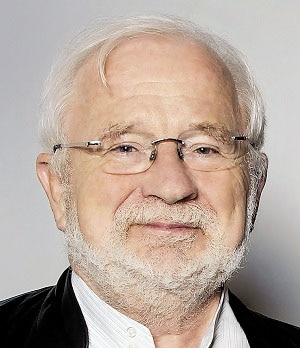
Paul M Vanhoutte
(1940 - 2019)
The Society regrets to announce the death of Honorary Member Paul M Vanhoutte. Paul trained in Belgium and held professorial positions at the University of Antwerp, The Mayo Clinic, and Baylor College of Medicine, where he was also Director of the Centre for Experimental Therapeutics. From 2006 until his death, he was based at the Faculty of Medicine, University of Hong Kong as Distinguished Visiting Professor, Director/Founder of the Biopharmaceutical Development Centre and Head of Department. Paul had a prodigious scientific output having co-authored or edited 36 books, published 669 original research papers, and 574 editorials, reviews or chapters in books. He was Editor-in-Chief of the Journal of Cardiovascular Pharmacology and an Associate Editor of the American Journal of Physiology (Heart and Circulatory Physiology). His major scientific contribution was to analyse the importance of endothelial cells in the control of the underlying vascular smooth muscle in health and disease. Paul mentored many young scientists during his career, supporting and stimulating them with his energy, enthusiasm and “joie de vivre.” Read his obituary in Physiology News here.

Patrick Wall
(1925 - 2001)
Honorary Member Patrick David “Pat” Wall was a leading British neuroscientist described as ‘the world’s leading expert on pain’ and best known for the gate control theory of pain.
Full Offsite Obituary Oral history

E. Geoffrey Walsh
( 1922 - 2003 )
Geoffrey Walsh studied medicine at Oxford, graduating in Animal Physiology in 1943. He spent two years as a Rockefeller student at Harvard University, gaining an MD, and returning to Oxford to graduate as MA, BSc and BM BCh in 1947. In 1951 he was appointed lecturer in the Department of Physiology at University of Edinburgh, under David Whitteridge. His research concerned human neuromuscular control and vestibular dysfunction – especially balance and tremor. He studied paraplegic patients, eventually being promoted to Reader, and his research interest in spastic children was recognised in his appointment as Honorary Neurophysiological Specialist at the Royal Hospital for Sick Children, Edinburgh. He was awarded Fellowship of the Royal Society of Edinburgh in 1959, and then of the Royal Colleges of Physicians of London (1967) and Edinburgh (1968). A musician in later life, his inaugural lecture as extra-mural Professor at the University of Central England in 1998 was entitled: ‘Movement control in normals, the disabled and musicians: muscles, medicine and Mozart’.
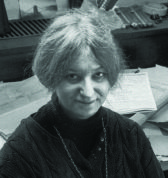
Anne Warner
d. 2012
Professor Anne Warner FRS, who has died aged 71, applied electrophysiological methods to the study of the development of the embryo. She was responsible for initiating the Microelectrode Techniques workshop at the MBA, Plymouth and more recently directed CoMPLEX, the systems biology centre at UCL.
She was elected a Member in 1968 and served on the Committee (1975 to 1979) and on the Editorial Board of The Journal of Physiology (1980-1987).
R A Webster
d. 2017
Roy Webster died peacefully on the 2nd April 2017. A Senior Lecturer, in the Department of Pharmacology at UCL, he was a gifted experimentalist. His early research focussed on confirming the identity and physiological roles of the newly discovered amino-acid neurotransmitters in the spinal cord. Later he went on to study drugs, notably the benzodiazepines, which interact with the receptors for these amino acid transmitters in specific regions of the central nervous system. He joined The Society in 1967.

Silvio Weidmann
( 1921 - 2005 )
Silvio Weidmann was a Swiss electrophysiologist. His elegant microelectrode work on cardiac Purkinje fibres in Cambridge led to several discoveries, including the phenomenon of all-or-nothing repolarization, a series of 1950s papers in The Journal of Physiology, and his classic 1956 book: Elektrophysiologie der Herzmuskelfaser .
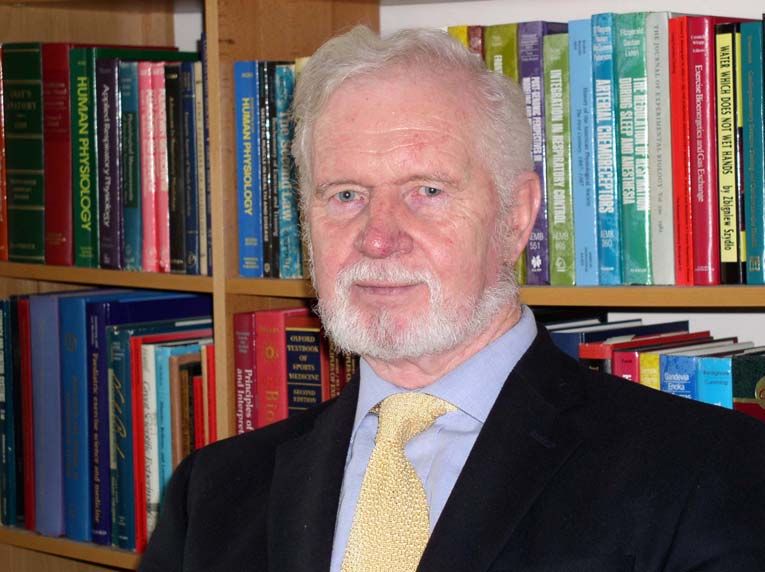
Brian Whipp
d. 2011
Brian was elected as a Member in 1984. He served on the Committee from 1993 to 1997, and was an Editor on the Board of Experimental Physiology from 1994 to 2000. Brian and his collaborators produced defining research in muscle energetics, pulmonary gas exchange and ventilatory control. His first love was sport and, among his many accomplishments, he was Welsh AAA champion for high hurdles and decathlon.

Saffron Whitehead
(1948-2019)
The Society is greatly saddened to hear of the death on 19 February of Member Saffron Whitehead, an emerita Professor of St George’s, University of London. With a PhD from McMaster University in 1974, she made significant contributions to endocrinology, providing early evidence for how endocrine disrupting chemicals and hormones impact on fertility and cancer. A Society member from 1980, Saffron edited Physiology News (1994-98) and served on Council (1995-99). As well as authoring an acclaimed textbook on clinical endocrinology, she was interviewed and wrote widely for the media on healthcare topics under her married name, Saffron Davies.
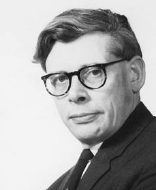
Reginal James Whitney
( 1914 - 2001 )
Reg Whitney conducted outstanding research in biomechanics and human physiology and was a distinguished inventor. With a zoology doctorate from the University of Birmingham, he conducted Army operational research from 1941, initially into the problems facing tank-operators. Subsequently he studied posture and motion during extreme human activities as senior scientific officer with the War Office. Working at the MRC Climate and Working Efficiency Unit (Oxford) from 1948, he developed the Whitney strain gauge plethysmograph for quantifying human peripheral blood flow and, later, a force analysis platform for investigating physiological aspects of whole body activities. In 1958, he moved to the MRC Institute for Medical Research at Hampstead. There he continued to analyse human posture and motion. Among other projects, he embarked on construction of a simulator to permit investigation by the Navy of the effects of ship motion on human performance. After 1974, he continued this work at the RAF Institute of Aviation Medicine, Farnborough, retiring from the MRC in 1980.
Ronald Whittam FRS
(1925 - 2023)
The Society is saddened to hear of the death of Professor Ron Whittam who died on 16 August 2023. Professor Whittam became a member in 1959, served on the committee as Meetings Secretary and Honorary Secretary (1969-74) and was elected an Honorary Member in 1986.
After leaving school at 14 and working as an apprentice in the family bakery in Oldham, he served in the RAF. During this time his natural intelligence was recognised: after attending night school, he obtained a scholarship to study for a BSc in Chemistry at Manchester University. Later he joined Hans Krebs in the MRC unit at Sheffield University for PhD studies and moved with him to Oxford. There, his grounding in cellular physiology was developed and then extended as he became Beit Memorial Fellow in the Physiology Department at Cambridge and later, a Lecturer in Krebs’ Dept of Biochemistry in Oxford (1958 to 1966). He was appointed to be founding professor of Physiology at Leicester University (1966).
His studies focussed on metabolic pathways and ion transport. With Dan Tosteson and Joe Hoffman, he discovered how to make resealed red cell ‘ghosts’, a valuable preparation tool for subsequent studies of transmembrane transport processes as they could be used for altering the intracellular ionic and ATP content at will, (Nature 1960 185 186-187). His work was foundational in revealing the asymmetry of the Na-K ATPase stimulation by Na and K ions and the stoichiometry of this activity with ATP consumption. The importance of Whittam’s work was recognised with his election to FRS in 1973. This work also served as a template for later work on the effects of replacement of squid axoplasm with artificial solutions (PF Baker, Al Hodgkin & TI Shaw J Physiol 1962).
In 1966, he was encouraged by Krebs to move to Leicester to become the founding Professor of General Physiology with a department later renamed simply as ‘Physiology’. The department grew substantially under his guidance.
Professor Whittam had significant national science funding roles, for example, as co-chair of the MRC Biological Research Board and a member of the Biological Sciences committee of the UGC. The transcript of his fascinating Oral Histories interview for The Society is available at the website (https://static.physoc.org/app/uploads/2021/06/01141748/Ron-Whittam.pdf).
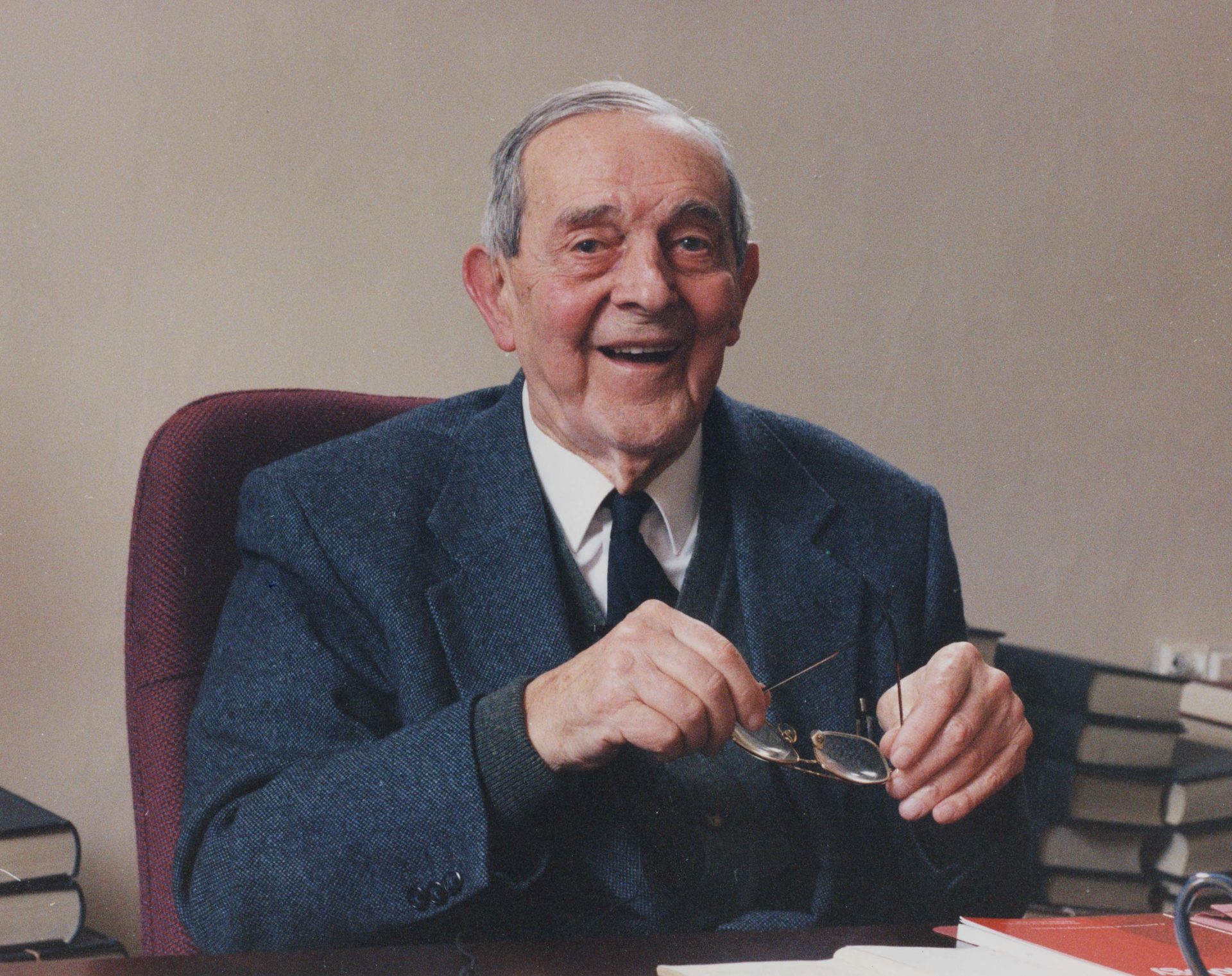
Wilfred F. Widdas
( 1916 - 2008 )
Wilfred Widdas was a stalwart of The Physiological Society. A member for over 50 years, he was on the Editorial Board of The Journal of Physiology , and was its chairman (1970–72). A medical graduate from Newcastle (1937), he served as a doctor in the Royal Army Medical Corps during the war. He then trained for his PhD on placental glucose transport at St Mary’s Hospital with Prof A. Huggett, contributing to placental and fetal research until 1960. His most important papers concerned erythrocyte glucose transport and he collaborated over a long period with Graham Baker. A Reader in Physiology at Kings College London by 1954, he later became Foundation and only Professor of Physiology at Bedford College, member of the Senate of London University and Chairman of the Board of Studies in Physiology, London University.

John Guy Widdicombe
( 1925 - 2011 )
John Widdicombe has been described as one of the giants of respiratory physiology over the last 50 years. He studied at Oxford, graduating in medicine in 1949 and taking his DPhil there as an MRC scholar at the Nuffield Institute for Medical Research (1953). After two years conscripted at Porton Down Microbiological Research Establishment, he was appointed lecturer, and then senior lecturer, at St Bartholomew’s Hospital, London. His research focused on lung mechanics and reflexes. A Visiting Scientist in the Cardiovascular Research Institute in San Francisco (1960-1), he worked on the nervous control of breathing and on the regulation of bronchomotor tone. He was then appointed lecturer in Physiology and Fellow of New College, Oxford (1961) remaining until he became Professor and Chairman of the new Physiology Department at St George’s (1972-92). He received many awards/degrees in his career including his FRCP in London in 1976, an honorary MD from Helsinki University in 2000, nine international medal awards, honorary membership of four international societies and a Life Time Achievement award. He was an Editor of The Journal of Physiology and British Journal of Pharmacology, President of the British Association for Lung Research (1994-8) and and Honorary Treasurer of The Physiological Society (1990-6).
Alan Williams
1951-2020
The Society has heard with regret of the death on 4 May of Member Professor Alan Williams. Joining the Cardiothoracic Institute, London after completing his PhD at Lancaster University, Alan obtained a British Heart Foundation (BHF) fellowship at Cornell in 1980 where meeting Chris Miller triggered a lifelong collaboration and a unique expertise in high resolution bilayer recording. His research on the intracellular calcium release channel, the ryanodine receptor RyR2, became of critical importance for cardiac physiology. Head of the Department for Cardiac Medicine, at the National Heart and Lung Institute, Imperial College, from 2002, he moved to a BHF chair at Cardiff University in 2007. A Society Member from 1988, Alan Williams retired in 2019 after a final move to Swansea in 2017.
Robin Gow Willison
d. 2012
Robin Willison, a Member of the Society from 1965 and, from 1980 to his retirement in 1990, head of the Department of Clinical Neurophysiology at the National.
Edward M Winter
( 1950-2020 )
The Society records with regret the death of Member Edward M. Winter, Professor Emeritus of the Physiology of Exercise at The Centre for Sport and Exercise Science, Sheffield Hallam University (SHU) on 18 July at the age of 70. He began his career teaching physical education at a Leicester secondary school before moving to his first higher-education post at Bedford College, later part of De Montfort University, in 1982. Edward’s primary research focus was the measurement and scaling of human performance and metabolism. A Fellow of BASES and a member of The Society from 1993, he moved to SHu in 1999 and under his leadership, SHU became a key centre of sport and exercise science in the UK. Ed was noted as a talented squash player, automotive engineer and magician.
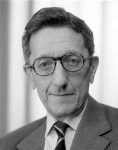
Gerald Wiseman
Gerry Wiseman’s life’s work, at University College Hospital, addressed active transfer mechanisms in the intestinal absorption of nutrients. For this work, he devised an acclaimed rodent intestinal preparation. He retired as Reader in Physiology in 1989.

Roger Woledge
d. 2015
The Society is sad to hear of the death of Professor Roger Woledge on 13 March following a riding accident. He had been a Member since 1968.

John Wolstencroft
(1922 - 1983)
John Wolstencroft was an eminent neuropharmacologist and Professor of Physiology at the University of Birmingham from 1970 until his death. After graduating from Cambridge with a first in Natural Sciences in 1947, he stayed there to conduct his doctoral research into the chemical control of breathing on a Medical Research Council (MRC) studentship. In 1951 he was appointed Lecturer in Physiology at Leeds University, where he published a series of papers with colleagues on the influence of the orbital cortex on the brain stem, and on brain stem-mediated cardiovascular and respiratory responses to changes in blood temperature. Throughout his decade at Leeds, he was largely responsible for administering and teaching the one-year physiology course for pharmacology and biochemistry students.
Inspired by visits to other laboratories, including that of Giuseppe Moruzzi in Pisa, Wolstencroft became interested in single neuron research techniques and moved to the MRC’s Neuropharmacology Research Unit at Birmingham in 1962. Collaborating with the Unit’s director, Philip Bradley, he conducted pioneering iontophoretic studies on the neurotransmitter actions of acetylcholine and noradrenaline in the brain stem, and the drugs that influence them. He trained several researchers from the UK and abroad in the new experimental techniques before transferring to the University’s Department of Physiology as senior lecturer under Professor Sidney Hilton (1967).
This move coincided with Patrick Wall’s return to the UK from the Massachusetts Institute of Technology and the beginnings of the Brain Research Association (BRA) as it emerged from the informal London Black Horse Group of neuroscientists. Wolstencroft was closely involved in the early development of BRA, later serving as its treasurer (1974-77) and Chairman (1977-80) and, in 1970, he was appointed Professor at Birmingham.
After a brief research diversion into the potential excitatory action of amino acids in the thalamus, his investigations turned to the possible role of peptides as specific CNS neurotransmitters, including the newly-discovered enkephalins. He published extensively on pain, analgesia and neurotransmitters in the brain stem raphe nucleus with his then research fellows, Thelma Lovick and David West. By doing so, they established the important function of the nucleus in motor control, potentially suppressing noxious inputs during the execution of motor tasks.
Wolstencroft’s research attracted funding from the MRC and the Wellcome Trust and he published extensively in the Journal of Physiology and elsewhere. At the time of his premature death, he was starting to explore the role of peptide neurotransmitters in sleep. His first major paper on this subject, an iontophoretic study of piperidine’s actions as a putative sleep factor, was published posthumously.
At Birmingham, Wolstencroft sat on committees responsible for allocating research funds, chairing the Faculty of Medicine’s Scientific Project Committee. He was on the editorial board of the journal ‘Neuropharmacology’ for a decade and acted as advisor to several universities and national institutions on research appointments and grant applications.
Married three times – most recently to Hisako Ikeda, the distinguished visual neurophysiologist – he enjoyed wine, art and gardening. After his death, family and colleagues established the Wolstencroft lecture in 1986. Now administered by the British Neuroscience Association, the lectureship allows an outstanding neuroscientist to present major advances in the field at the Association’s biennial national meeting.
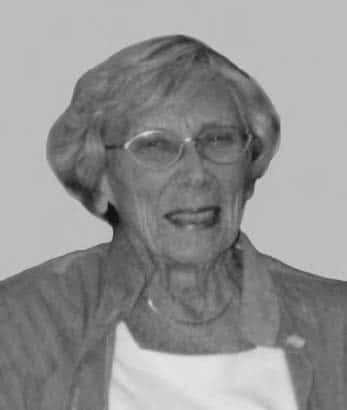
Maureen Young
d. 2013
Maureen Young was born on 16 October 1915 in Southwold, England. An eminent fetal physiologist, she published well over 100 peer-reviewed original papers, as well as reviews and chapters in books, in a publishing career that spanned 63 years. For many of these, she ran a research unit in O&G at St Thomas’, becoming Professor of Perinatal Physiology before her retirement in 1982. She was one of the first women to secure a teaching position in a medical school and championed the professional recognition of women in an era when female academics were rare. She was an active advocate of the need for basic research to underpin advances in medicine and will be remembered for her many kindnesses to younger academics and clinicians.

John Atherton Young
( 1936 - 2004 )
John Young was a towering figure in Australian physiology, a global expert on exocrine secretion and the undoubted authority on salivary secretion, as evidenced by nine ISI defined citation classics and nearly 5,000 citations in all. After studying medicine in Brisbane, John travelled to Sydney for doctoral training in renal physiology, followed by post-doctoral studies in Berlin, before returning to Australia in 1966 to a Senior Lectureship in Physiology at Sydney University. Subsequently he was promoted to Professor and Head of Department, before becoming Dean of Medicine in 1989 and then Pro-Vice- Chancellor for Health Sciences in 1996, a post he held until his retirement in April 2003.

David L. Yudilevich
( 1930 - 2006 )
David L Yudilevich made seminal contributions in his early career to the field of capillary permeability, studying microvascular permeability in the isolated perfused gastric mucosa, heart and brain. Born in Santiago, he received his MD (1957) from the Universidad de Chile and conducted post-doctoral research for some years in the USA. He returned to Chile but left during the 1973 military coup to work with Laurence Smaje at University College London. The next year, he was appointed Professor and Head of the Department of Physiology at Queen Elizabeth College, University of London – a post he held until 1985. A strong advocate of research links between Chile and Britain, he published more than 100 articles in peer-reviewed international journals. In his retirement, he wrote a series of books on Darwin and Humboldt and was awarded Emeritus Professorship of Physiology at King’s College London, Professor Titular in the Faculty of Medicine in the Universidad de Chile and Honorary Membership of the Sociedad Chilena de Ciencas Fisiologicas.
Notices of death 2025
Professor Evelyne Sernagor (March 2025)
Notices of death 2024
Brian Harvey (December 2024)
Roger Thomas (December 2024)
Christopher Charles Michel (July 2024)
Thomas Bolton (May 2024)
Robert Martin (March 2024)
Sheila Jennett (March 2024)
Tom Sears (February 2024)
Notices of death 2023
Robert Henderson (December 2023)
David Brown (October 2023)
Ronald Whittam (August 2023)
Cecil Kidd (July 2023)
David Begley (July 2023)
John G Nicholls (July 2023)
Jeanette Erdmann (July 2023)
Andrew Packard (June 2023)
KW Ranatunga (May 2023)
Gavin Pinniger (April 2023)
Ann Margaret Alderson (April 2023)
Ann Silver (March 2023)
Roger Ramsbottom (February 2023)
Kenneth Page (January 2023)
Notices of death 2022
Philippe Ascher (October 2022)
Tony Macknight (July 2022)
Ian Glynn (July 2022)
Sir Colin Blakemore (June 2022)
Sheila Gardiner(March 2022)
Richard Hellon (February 2022)
Harald Reuter (February 2022)
Kevin Tipton (January 2022)
Anthony Ridge (January 2022)
Notices of death 2021
Malcolm Roberts (December 2021)
Piers C.G. Nye (December 2021)
Derek Bergel (December 2021)
Mark Dunne (December 2021)
K A Paul Edman (December 2021)
Hisako Ikeda-Wolstencroft (December 2021)
David Ogden (December 2021)
Lars Ole Simonsen (November 2021)
John Morrison (September 2021)
Jere Mitchell (July 2021)
Frederick Noel Fastier (July 2021)
Edward Carmeliet (April 2021)
Notices of death 2020
Frank-Bowser Riley (December 2020)
Otto Hutter (November 2020)
Jan Lännergren (October 2020)
Leslie Iversen (July 2020)
Bernard T. Donovan (July 2020)
Edward M Winter (July 2020)
Horace B Barlow (July 2020)
Ronan O’Regan (July 2020)
Henry Michael Snow (June 2020).
Geoffrey Burnstock (June 2020)
Alan Williams (May 2020)
Gerhard Giebisch (April 2020)
Nicholas Standen (April 2020)
Peter B C Matthews (March 2020)
Michael Berridge (February 2020)
John Bligh (January 2020)
David A Johns (January 2020)
Notices of death 2019
Paul M Vanhoutte (August 2019)
Thomas Copland Muir (August 2019)
Sir Stanley Peart (March 2019)
To notify us of the death of a Member please email membership@physoc.org.
